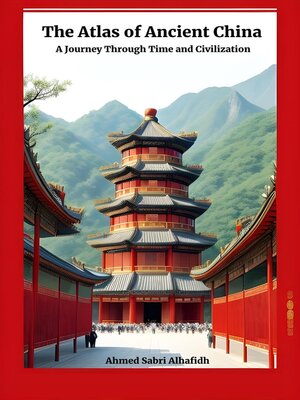
Sign up to save your library
With an OverDrive account, you can save your favorite libraries for at-a-glance information about availability. Find out more about OverDrive accounts.
Find this title in Libby, the library reading app by OverDrive.



Search for a digital library with this title
Title found at these libraries:
| Library Name | Distance |
|---|---|
| Loading... |
In the heart of East Asia, where the great rivers of the Yangtze and Yellow River converge, lies the cradle of one of the world's oldest and most enduring civilizations. The history of ancient China is a tapestry woven with threads of myth, legend, and historical fact, each strand contributing to the rich fabric of a culture that has influenced the world for millennia.
This book, "The Atlas of Ancient China, A Journey Through Time and Civilization" is an exploration of the myriad cultures, dynasties, and landscapes that have shaped this ancient land. It is a journey through time, from the earliest Neolithic settlements to the grandeur of the Qin and Han dynasties, and from the bustling trade routes of the Silk Road to the serene landscapes of the Chinese countryside.
Each chapter of this book is a step into a different era, a different perspective on the evolution of Chinese civilization. We will delve into the myths and legends that have shaped Chinese identity, explore the technological and artistic innovations that have set China apart, and examine the social and political structures that have governed its people.
This is not just a history of ancient China, but a living, breathing atlas, a collection of maps, illustrations, and narratives that bring the past to life. It is a journey that will take us from the bustling markets of Chang'an to the quiet contemplation of the Taoist mountains, from the grandeur of the Forbidden City to the simplicity of rural life.
Join us as we embark on this journey through time and civilization, as we uncover the stories, the people, and the landscapes that have made ancient China one of the greatest civilizations in human history.
— Ahmed Sabri Alhafidh







